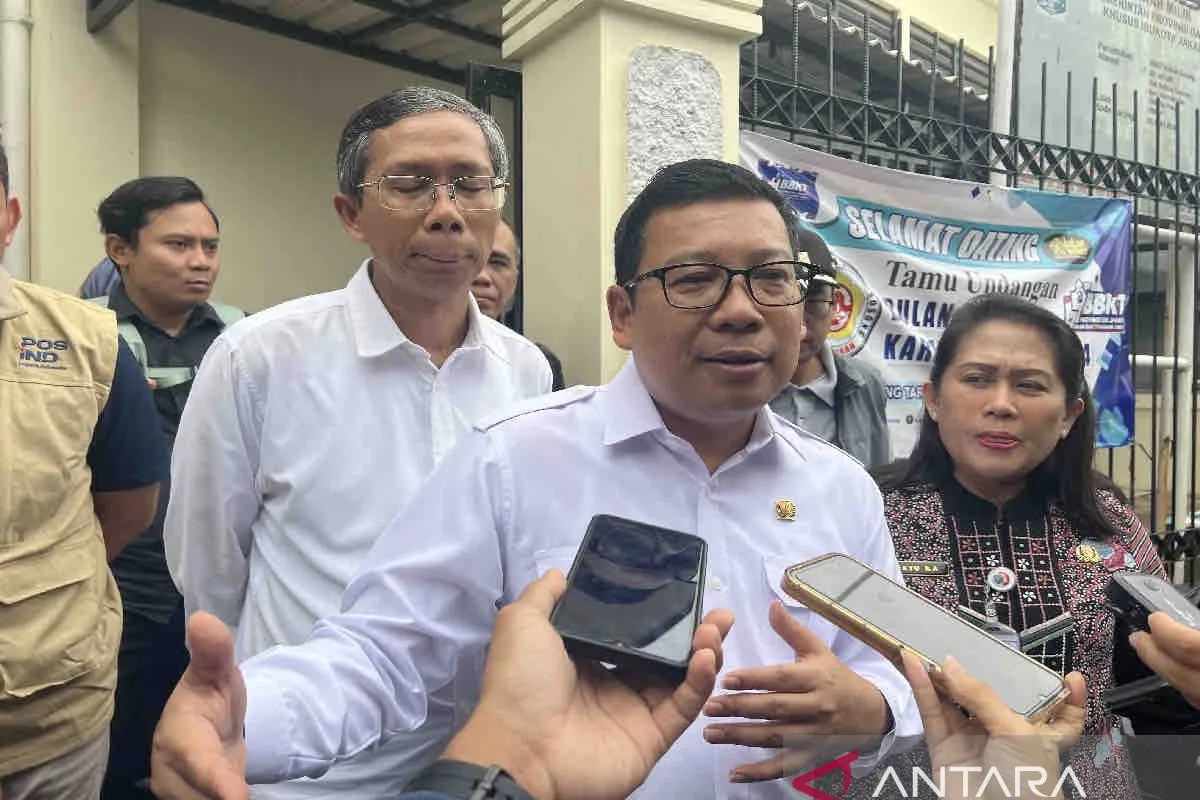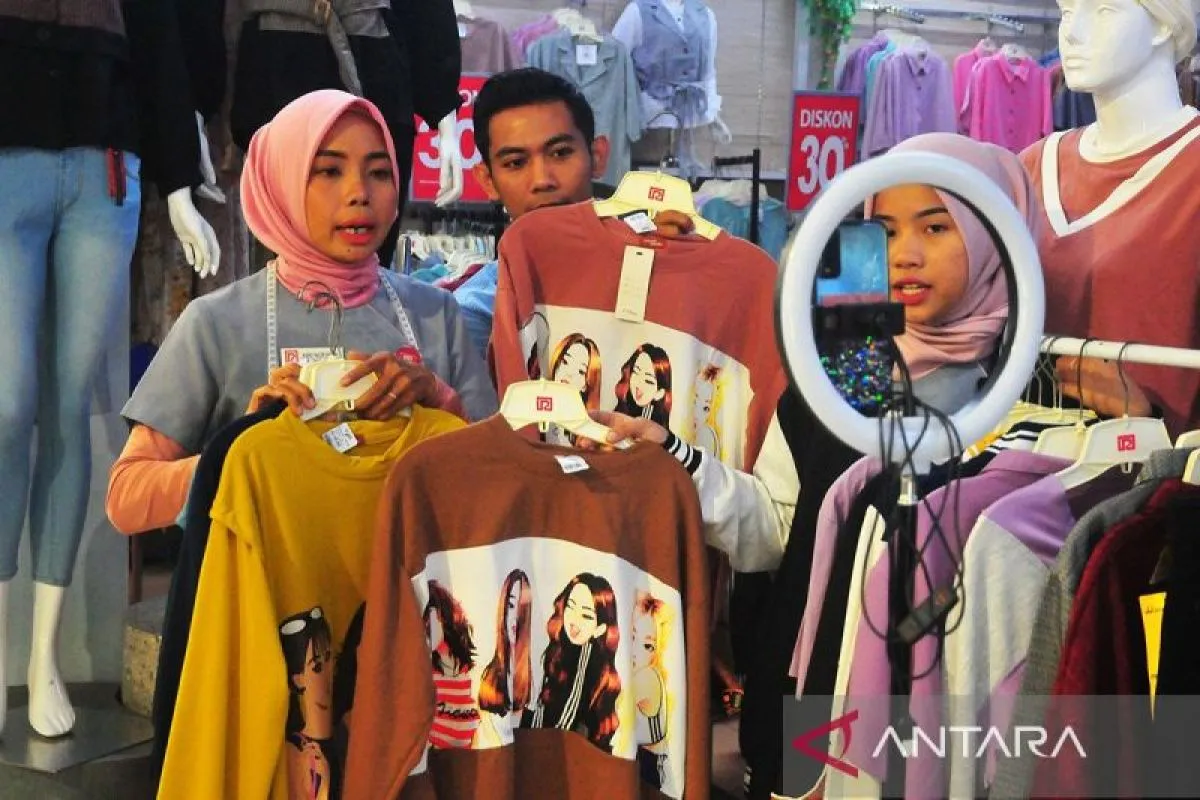Live Streaming
Program Highlight
Company Profile
December
Bapanas gets President nod for continuing rice aid program
Written by Ahmad Faisal

Head of the National Food Agency (Bapanas), Arief Prasetyo Adi, delivering a statement to the press in Kebayoran, Jakarta, on Friday (December 6, 2024). (ANTARA/Harianto)
VOI News, Jakarta: Head of the National Food Agency (Bapanas), Arief Prasetyo Adi, has said that the rice assistance program will be continued in 2025 as it has been approved by President Prabowo Subianto.
"At a limited meeting with the President, he approved it to be given again in January and February," he confirmed during the distribution of rice assistance to beneficiaries in Kebayoran, Jakarta, on Friday as reported by Antara News Agency (6/12).
According to him, in 2024, the rice assistance program targeted 22 million beneficiary families.
However, in 2025, the number of beneficiary families will be reduced to 16 million, though the amount of rice will remain the same, namely 10 kilograms for each beneficiary family.
The number of beneficiaries for 2025 has been revised due to several factors, including the decline in the percentage of the poor population.
According to Statistics Indonesia (BPS), the number of poor in March 2024 stood at 25.22 million, reflecting a 0.68 million decrease compared to March 2023 and a decline of 1.14 million compared to September 2022.
In addition, to make the assistance program more accurate, decile 1 and decile 2 families that need the assistance the most will be the focus of the program.
Furthermore, there will be other programs that will have wide coverage in 2025, such as the Free Nutritious Meals program.
At the aid distribution event on Friday, he also conveyed his appreciation to Finance Minister Sri Mulyani Indrawati for providing budget support despite the tight fiscal situation.
The Bapanas head expressed the hope that the rice assistance will ease the burden on the community, especially in meeting their basic needs.
Currently, the third phase distribution of rice assistance, namely for December 2024, is still on in several regions and is targeted to be completed before the end of the year.
December
Indonesian Governtment optimizes online shopping day to boost people's purchasing power
Written by Ahmad Faisal
Employees present merchandise through live broadcast or Live Shopping at a mall in Kudus, Central Java, on Thursday (October 12, 2023). ANTARA FOTO/Yusuf Nugroho/Spt/am.
VOI News, Jakarta: Coordinating Minister for Economic Affairs Airlangga Hartarto stated that the government is optimizing National Online Shopping Day, dubbed Harbolnas, on December 12 to boost consumer purchasing power.
"We are launching National Online Shopping Day alongside offline shopping days from December 26, 2024, to January 11, 2025. Last year's Harbolnas generated Rp35 trillion (US$2.2 billion), and we aim to achieve the same figure this year," he noted on Friday (6/12).
As reported by Antara News Agency (7/12) he emphasized that the world continues to face several economic challenges.
According to Hartarto, global growth is projected to be 3.2 percent in both 2024 and 2025, below pre-pandemic growth levels.
Despite the uncertainty, the Indonesian economy is still considered solid, as reflected in the growth of the gross domestic product (GDP) in the third quarter of 2024 of 4.95 percent (year on year/yoy) or 5.03 percent (cumulative-to-cumulative/ctc).
Meanwhile, inflation remains under control within the target range. In November 2024, inflation was recorded at 1.55 percent (yoy), maintained in the range of 2.5 percent, give or take one percent.
He made assurance that the government would continue to maintain price stability and affordability, especially ahead of the Christmas and New Year's holidays.
Regarding Harbolnas, Hartarto lauded the ministries and institutions, associations, Micro, Small, and Medium Enterprises (MSMEs), and the community for enthusiastically supporting the program, which focuses on MSMEs and domestic industries.
"Data from NielsenIQ showed that our people are increasingly fond of shopping. The fast-moving consumer goods (FMCG) products until the third quarter (Q3) still grew 1.1 percent year-on-year. Hence, domestic consumption is still growing," he remarked.
Meanwhile, Trade Minister Budi Santoso affirmed that the government is keen to encourage the momentum of sales of MSMEs products during the 2024 Harbolnas.
Hence, the government also dedicates December 10,11, 13, and 16 to the sale and promotion of domestic products.
He expressed hope that this year's Harbolnas would increase the transaction value by 13-16 percent compared to total transactions in 2023, with a notable rise in the contribution of local product transactions during the 2024 event.
December
Indonesia Strengthens Ethiopia's Livestock Sector Through Training and Artificial Insemination Support
Written by Daniel
December
Indonesia and Thailand Forge Closer Ties Through New Collaborations
Written by Daniel


